
The FDA approved multiple groundbreaking treatments in July, enhancing options across patient populations.

The FDA approved multiple groundbreaking treatments in July, enhancing options across patient populations.

Dordaviprone (Modeyso) is now approved to treat recurrent H3 K27M-mutant diffuse midline glioma, an ultra-rare, aggressive brain tumor primarily affecting children.

There are key steps to take that can ensure equitable access to pegcetacoplan, explained Carla Nester, MD, MSA, FASN, who also highlighted remaining questions on long-term outcomes, safety, and pediatric use.

This approval offers a promising new targeted treatment for patients aged 12 and older with C3 glomerulopathy (C3G) and primary immune complex membranoproliferative glomerulonephritis (IC-MPGN), according to Carla Nester, MD, MSA, FASN, addressing a critical gap left by broad immunosuppressive therapies.

Following the FDA approval of linvoseltamab (Lynozyfic; Regeneron) for heavily pretreated multiple myeloma, Sundar Jagannath, MBBS, highlights its potential for earlier use, increased accessibility, and greater competition in the B-cell maturation antigen (BCMA) bispecific antibody space.

The newly FDA-approved linvoseltamab (Lynozyfic; Regeneron) may improve access to multiple myeloma treatment by offering an off-the-shelf, outpatient option that can be administered in community settings, according to Sundar Jagannath, MBBS.

The FDA approved pegcetacoplan (EMPAVELI; Apellis Pharmaceuticals) as the first treatment for patients 12 years and older with the rare, severe kidney diseases C3 glomerulopathy (C3G) and primary immune complex membranoproliferative glomerulonephritis (IC-MPGN).

The FDA’s approval of linvoseltamab for adults with heavily pretreated relapsed/refractory multiple myeloma marks a significant advance, with Sundar Jagannath, MBBS, emphasizing its high response rates, manageable dosing schedule, and reduced treatment burden.
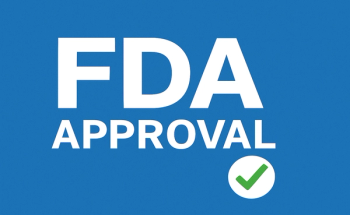
Adult patients with moderate to severe hand eczema with previous treatment failure or in whom topical corticosteroids are contraindicated stand to benefit the most from this approval.

ATLAS trial investigator Guy Young, MD, Children's Hospital Los Angeles and University of Southern California Keck School of Medicine, highlights the current treatment options for patients with hemophilia A or B, with or without inhibitors, since the FDA approval of fitusiran (Qfitlia; Sanofi).

In part 2, Hans Lee, MD, shares practical tips for using linvoseltamab in heavily pretreated multiple myeloma and outlines trials that may expand its future role.

The newly approved linvoseltamab (Lynozyfic; Regeneron) has a manageable safety profile, along with a patient-friendly dosing schedule that includes intravenous administration, step-up dosing, and de-escalation to monthly maintenance.

Many FDA accelerated approvals continue to rely heavily on surrogate endpoints, raising ongoing uncertainty about the true clinical benefits of these therapies.

Finerenone gained FDA approval for heart failure treatment, showcasing significant benefits in reducing cardiovascular events, based on FINEARTS-HF trial results.
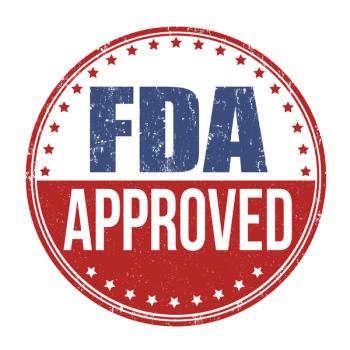
The treatment marks the only targeted oral treatment in patients with non–small cell lung cancer with epidermal growth factor receptor exon 20 insertion mutations.

For the second time in under 3 weeks, the FDA has approved a treatment for the inherited genetic disorder characterized by recurrent episodes of severe swelling.
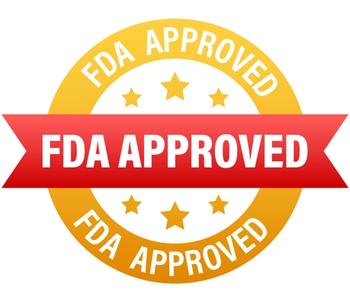
This approval comes almost a year after the drug received a complete response letter due to third-party manufacturing issues.

FDA issues a complete response letter for oxylanthanum carbonate, a treatment for hyperphosphatemia in patients with chronic kidney disease (CKD) on dialysis.
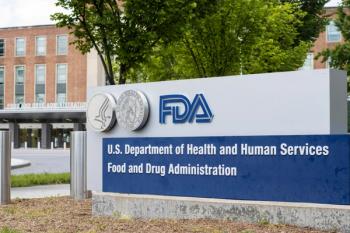
Belimumab is now the first and only subcutaneous biologic therapy approved for at-home administration in pediatric lupus nephritis.

The FDA approved datopotamab deruxtecan-dlnk (Datroway; Daiichi Sankyo) for the treatment of locally advanced or metastatic EGFR-mutated non–small cell lung cancer (NSCLC) after receipt of EGFR-directed therapy and platinum-based chemotherapy.

In this interview with TRUST-I and TRUST-II trial investigator, Jorge J. Nieva, MD, USC Keck School of Medicine, he walks through the design of the trials, the results that supported the FDA approval, and taletrectinib’s potential to redefine first-line therapy.

The FDA has approved Monjuvi (tafasitamab) for relapsed follicular lymphoma, offering hope with improved progression-free survival in combination therapy.

The approval of lenacapavir, a form of pre-exposure prophylaxis (PrEP), marks significant progress in preventing HIV, making it vital for the treatment to be available and accessible to those most vulnerable, explains Colleen Kelley, MD, MPH, Rollins School of Public Health at Emory University.

Dupilumab was approved by the FDA to treat bullous pemphigoid, that demonstrated its efficacy in achieving sustained disease remission and significantly improving symptoms like itch and disease severity in adults.

Early trials found that both garadacimab and sebetralstat were safe when used in patients living with hereditary angioedema, which speaks to the promise of the FDA-approved garadacimab.

The recent approval of garadacimab can help to treat patients with hereditary angioedema (HAE) along with sebetralstat, which is awaiting FDA approval, explains Timothy Craig, DO, Penn State Health.

With the approval of the FDA, garadacimab can help patients with hereditary angioedema (HAE) prevent attacks by shutting down the contact pathway.

Garadacimab-gxii is the first and only treatment that targets factor XIIa (FXIIa) for the prophylactic prevention of hereditary angioedema (HAE) attacks in patients 12 years and older.

The FDA has granted approval to pembrolizumab for the treatment of adult patients with resectable, locally advanced HNSCC whose tumors express PD-L1 with a CPS of ≥1.
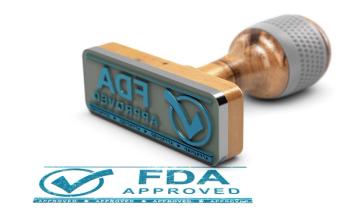
The FDA approved mitomycin intravesical solution (Zusduri) for patients with recurrent low-grade intermediate risk non–muscle-invasive bladder cancer (NMIBC).